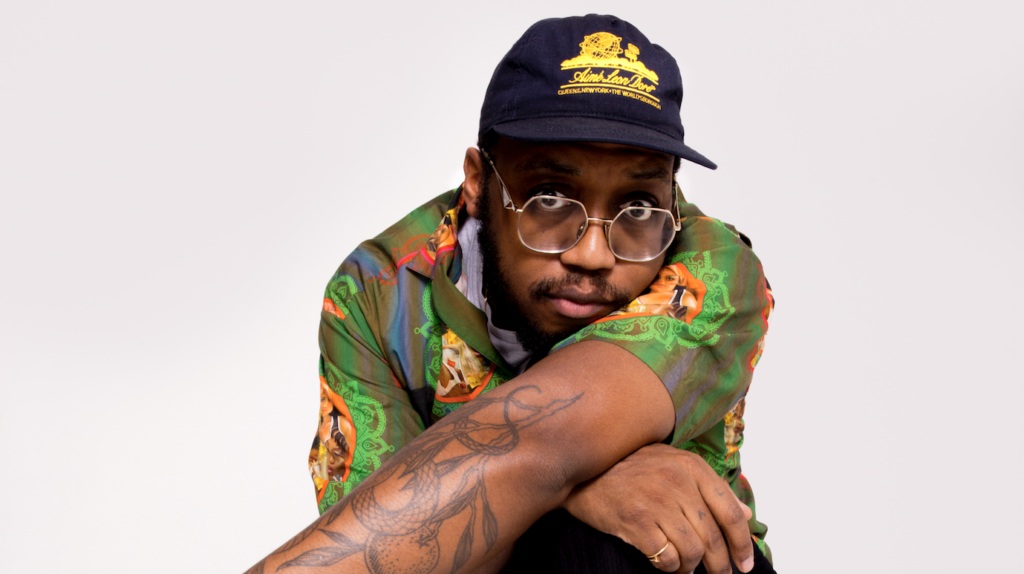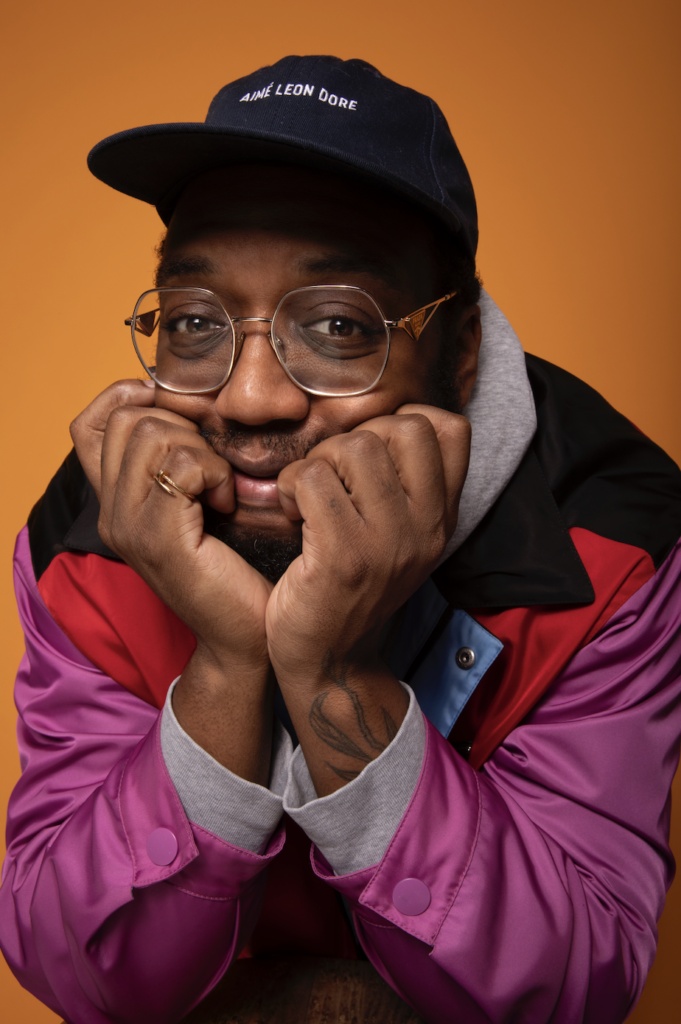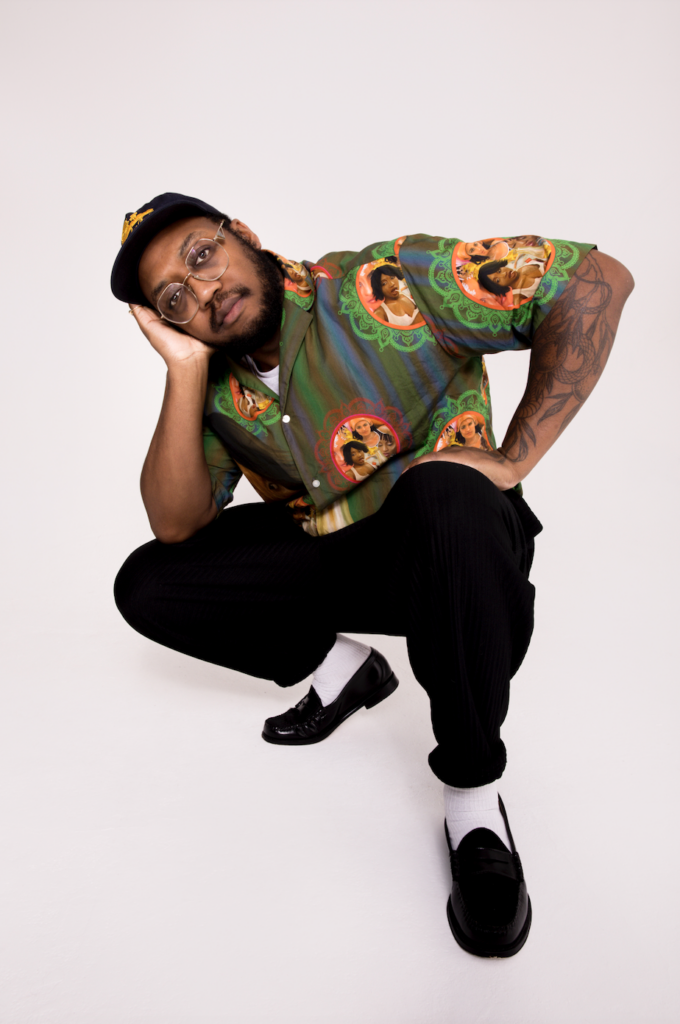Meet writer, filmmaker and photographer Kevin Morosky, who wants queer communities to get creative
Exclusive: "Does the pressure [of success] get to me? No, not at all. I'm a Black gay man who grew up poor in Croydon. I’ve survived worse!’
By James Hodge

Kevin Morosky’s credentials are impressive – as a multi-disciplinary creative, he has made award-winning short film Bruce, a series of successful ad campaigns for some of the world’s biggest media brands, and is a proactive campaigner for Black and queer people.
His latest book, Black Women Always: Conversations On Life, Culture and Creativity celebrates the pantheon of women who have inspired Morosky’s career in the arts so far. Here, James Hodge speaks to Kevin about overcoming school-day struggles, the importance of queer spaces, and how creativity can free our community.
What made you want to write a book about creativity?
I think true creativity is freedom: it’s a form of self care, a space for growth. You can stretch your imagination without restraint. In a culture where we place too much emphasis on creating for audiences – the likes, the views, the awards, the acceptance – creativity for the self is true freedom. If we create for others, we have to ensure we bring something to the conversation and that it might serve our communities.

Has your personal success created a pressure on your own creativity?
Does the pressure get to me? No, not at all. I’m a Black gay man who grew up poor in Croydon. I’ve survived worse!
Where do you think your creativity originally stemmed from?
I grew up in a busy family household – always surrounded by my parents, aunts and uncles, my siblings – where everyone had creative interests. My father loved drawing and photography. My grandma especially would encourage me to be imaginative – playing as a scientist, a circus performer…
It’s ironic that whilst I was encouraged to be creative at home, I wasn’t encouraged at school.
Do you think that people are born creative, or do you think people can become creative?
Everyone is creative – everyone has something to say. Everyone deserves their seat at the table and to help build the world we are working towards. But its important to understand that what you create shouldn’t be compared to others – shouldn’t be made to fit the mould. Come out and do your own thing – explore!
Where did the premise for your latest book, Black Women Always, come from?
I wanted to work in advertising, so I went out and bought all the books I could find to teach me the tricks of the industry. The books were consistently pale, male and stale in perspecitve. I’m not saying they weren’t helpful, but they didn’t incorporate anything that spoke to me or the audiences that advertising is supposed to appeal to. Black women are a massive demographic of purchasing power. I wanted to write the book that would combat the issue.
I am not a creative purely from the heart. I learned. This book showcases the Black women who inspired me. my creativity and pushed me forward on it.
And when you’ve got such a litany of great figures to choose from, how do you go about selecting them?
These are my friends and peers. You realise very quickly, and especially in marginalised groups, that you need to support one another. No one realizes that I’m the Olivia Pope (from TV show Scandal) of London – always keen to bring creatives together.

So, for you, collaboration is very important to creativity?
I think, as humans would, communication is key to our existence. A lot of the troubles facing the world right now could be solved simply by sitting down and talking. That’s collaboration. But collaboration is also about listening actively. Backing people in their moment. We need to make space for everyone.
Has the process of putting the book together changed your own viewpoint on creativity?
Whilst my English teacher inspired me at school, teaching me Shakespeare by relating his work to Biggie Smalls, many teachers were discriminatory and bullied me. Having explored my education in the opening chapter of the book, I’ve had some fascinating conversations with my mum about that time in my life. I always thought she was annoyed with me for my struggle at school, and now I realise, she was mad at my teachers – for not supporting me, stretching me or believing in my potential. It was a different time – dyslexia wasn’t a talking point, there wasn’t alternative methods of teaching on offer like today.
My journey with dyslexia has made me readdress my relationship with books too. I think for a long time I became scared of reading – I wasn’t diagnosed with dyslexia until my 30s – and I had strayed into audio and video content. Having written the book, I was reinvigorated to read again. I’ve ordered so many, and now I have a routine of reading for half an hour every morning. It’s the best start to my day.
One of the big debates in the media doing the rounds is the fact that there are theatrical productions who are offering performances exclusively open to the Black community. What’s your angle?
The media reaction just shows what I knew already to be true: that no one did the reading that they pretended they did in response to Black Lives Matter in 2020. People don’t seem to understand how hostile these spaces can be. And not just in the obvious ways of the absence of Black and brown people. It’s also in the language of the place, the rules, the intricacies. We need spaces for Black people that are accessible and make people feel space.
It’s the same for the queer community. I’m very excited and in love with my cultures and therefore I’m protective of them. I am always thinking about how I can use my work to [bring] more people together into this spaces.
Why is it important for LGBTQ people to be creative ?
It’s important because queer culture has shaped the world for the better. We need creativity in the community because from that passion emerges understanding, and the power to fight for and defend one another.
What advice would you give to queer people who want to become more creative?
Make what you need to make – say what you need to say. Equally, come and support the art of others. We need to show up for one another.
